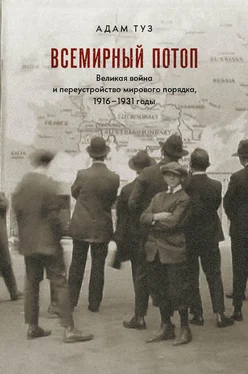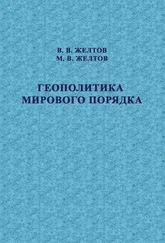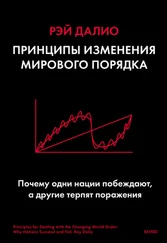FRUS: Lansing Papers, 1923, vol. 2, p. 56.
W. Louis, British Strategy in the Far East, 1919–1939 (Oxford, 1971), p. 104.
M. Howard, The Continental Commitment: The Dilemma of British Defence Policy in the Era of the Two World Wars (London, 1972), p. 81–84.
Link, Stabilisierungspolitik, p. 179–187.
P. Yearwood, Guarantee of Peace: The League of Nations in British Policy, 1914–1925 (Oxford, 2009), p. 253.
Ibid., p. 264–265.
M. Berg, Gustav Stresemann und die Vereinigten Staaten von Amerika: weltwirtschaftliche Verflechtung und Revisionspolitik, 1907–1929 (Baden-Baden, 1990).
Fischer, The Ruhr Crisis, p. 230.
Martin, France, p. 188.
H.-P. Schwarz, Konrad Adenauer: A German Politician and Statesman in a Period of War, Revolution, and Reconstruction (Oxford, 1995), vol. 1, p. 171–194.
Feldman, Great Disorder, p. 768.
R. Scheck, «Politics of Illusion: Tirpitz and Right-Wing Putschism, 1922–1924», German Studies Review 18 (1995), p. 29–49.
A. Wirsching, Vom Weltkrieg zum Buergerkrieg? Politischer Extremismus in Deutschland und Frankreich, 1918–1933/39. Berlin und Paris im Vergleich (Munich, 1999), p. 238.
D. R. Stone, «The Prospect of War? Lev Trotskii, the Soviet Army, and the German Revolution in 1923», The International History Review 25, no. 4 (December 2003), p. 799–817.
G. Feldman, «Bayern und Sachsen in der Hyperinflation 1922», Historische Zeitschrift 238(1984), p. 569–609.
D. Pryce, «The Reich Government versus Saxony, 1923: The Decision to Intervene», Central European History 10 (1977), p. 112–147.
Feldman, Great Disorder, p. 774.
K. Schwabe (ed.), Die Ruhrkrise 1923: Wendepunkt der internationalen Beziehungen nachdem Ersten Weltkrieg (Paderborn, 1985), p. 29–38.
Feldman, Great Disorder, p. 776–777.
G. Schulz (ed.), Konrad Adenauer 1917–1933 (Cologne, 2003), 203–232, and K. D. Erdmann, Adenauer in der Rheinlandpolitik nach dem Ersten Weltkrieg (Stuttgart, 1966).
Schulz, Konrad Adenauer 1917–1933, p. 346.
Maier, Great Disorder, p. 393.
Feldman, Great Disorder, p. 825.
Ibid., p. 661.
Berg, Stresemann, p. 160, 168–169, 171.
Link, Stabilisierungspolitik, p. 206–207.
A. Orde, British Policy and European Reconstruction after the First World War (Camtiridge 1990), p. 244.
Krumeich and Schroeder (eds), Der Schatten, p. 80.
J. Bariéty, Les Relations Franco-Allemands aprés la Premiиre Guerre Mondiale (Paris, 1977), p. 263–265.
Berg, Stresemann, p. 159.
Leffler, Elusive Quest, p. 94–95.
Ibid., p. 99.
Yearwood, Guarantee of Peace, p. 273–289.
D. Marquand, Ramsay MacDonald (London, 1997), p. 297–305.
The Times, «MacDonald on Ruhr», 12 February 1923, 12, and «Mr. MacDonald On Ruhr „Success“», 26 September 1923.
Marquand, MacDonald, 333; The Times, «Labour and Allied Debts», 13 December 1923.
J. C. Cairns, «A Nation of Shopkeepers in Search of a Suitable France: 1919–1940», The American Historical Review 79, no. 3 (June 1974), p. 721.
Martin, France, p. 189–192.
S. A. Schuker, The End of French Predominance in Europe: The Financial Crisis of 1924 and the Adoption of the Dawes Plan (Chapel Hill, NC, 1976), p. 28, 53–57.
E. L. Dulles, The French Franc, 1914–1928: The Facts and their Interpretation (New York, 1929), p. 170–174.
Martin, France, p. 232–233; Maier, Recasting, p. 460–471.
Leffler, Elusive Quest, p. 97.
Feldman, Great Disorder, p. 829.
D. Neri-Ultsch, Sozialisten und Radicaux – eine schwierige Allianz (Munich, 2005).
Leffler, Elusive Quest, p. 100–104.
Leffler, Elusive Quest, p. 105.
FRUS: Lansing Papers, 1924, vol. 2, p. 28–30; B. Glad, Charles Evans Hughes and the Illusions of Innocence: A Study in American Diplomacy (Urbana, IL, 1966), p. 227.
Schuker, End of French Predominance, p. 103.
J. Wright, Gustav Stresemann: Weimar’s Greatest Statesman (Oxford, 2002), p. 275.
Scheck, «Politics of Illusion».
Feldman, Great Disorder, p. 801.
T. Raithel, Das Schwierige Spiel des Parlamentarismus: Deutscher Reichstag und französische Chambre des Députés in den Inflationskrisen der 1920er Jahre (Munich, 2005), p. 196–341.
Feldman, Great Disorder, p. 822–823.
Ibid., p. 815, 802.
Leffler, Elusive Quest, p. 111.
W. McNeil, American Money and the Weimar Republic: Economics and Politics on the Eve of the Great Depression (New York, 1986), p. 33.
Cohrs, Unfinished Peace.
Речь лауреата Нобелевской премии см. на: www.nobelprize.org/nobel_prizes/peace/ laureates/1926/stresemann-lecture.html.
О развитии «пацифизма как Realpolitik» в Германии см.: L. Haupts, Deutsche Friedens-politik, 1918–1919 (Dusseldorf, 1976).
S. Hoffmann, Gulliver’s Troubles, or the Setting of American Foreign Policy (New York, p. 53.
Documents on British Foreign Policy, 1919–1939 [DBFP], series 1a, vol. 5, ed. E. L. Woodward and Rohan Butler (London, 1973), p. 857–75; B. McKercher, The Second Baldwin Government and the United States, 1924–1929: Attitudes and Diplomacy (Cambridge, 1984), p. 174.
W. Link, Die amerikanische Stabilisierungspolitik in Deutschland 1921-32 (Düsseldorf, 1970) p. 223–241.
W. McNeil, American Money and the Weimar Republic: Economics and Politics on the Eve of the Great Depression (New York, 1986).
A. Ritschl, Deutschlands Krise und Konjunktur, 1924–1934: Binnenkonjunktur, Auslands-verschuldung und Reparationsproblem zwischen Dawes-Plan und Transfersperre (Berlin, 2002).
Читать дальше
Конец ознакомительного отрывка
Купить книгу











